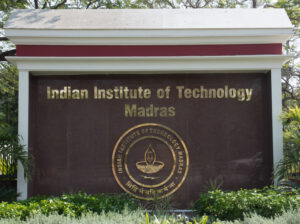What exactly is TCS?
The TCS, or Tax Collected at Source, is the tax that the seller collects from the buyer when the buyer purchases a specific category of goods. This TCS rate is determined by the category of the items, and the seller must deposit the tax collected from the buyer with the government. In other words, TCS is a tax paid to the government by the seller, who collects it from the buyer or lessee. The items subject to this tax are listed in Section 206C of the Income Tax Act of 1961. Read more about tcs rate under gst here.
TCS stands for Tax Collected at Source
Let us use an example to explain the process of imposing this tax. If a buyer purchases a car for Rs 10.01 lakh, TCS will be payable in the amount of Rs 10,010. This amount would need to be submitted to a specific branch of the bank that has been authorised by the government to accept such payments. The person selling the cars is only responsible for collecting the money from the buyer and remitting it to the government; he is not responsible for paying anything himself or herself.
This tax must be collected during transactions such as selling goods, issuing a receipt for cash taken from the buyer, or issuing a draught or cheque, depending on the buyer’s preferred mode of payment. As a result, the seller serves as a go-between for the buyer and the government. As a result, rather than being paid by businessmen, this tax is paid by consumers. However, not all goods are taxed through this source; rather, only a subset of goods are taxed. Let’s take a look at the items listed below.
TCS nonpayment
It should be noted that if the TCS is not paid on time to the government, the seller will be charged 1% of the total amount that is not paid on time as a penalty, which will be paid by the seller only, and the buyer cannot be charged for this at no cost.
TCS Sellers Come in a Variety of Styles
The following organisations and individuals would be considered TCS sellers:
- Partnership Firms Company Local Authority
- Co-operative Society
- Partnership Firms
- Company
- Local Authority
- Statutory Corporation
- Authority of the State Government
- Statutory Corporation or Authority of the Central Government
Anyone who made more money than the limits set out in Section 44AB of the tax code the previous fiscal year. Know more about rule 42 of cgst rules here.
TCS Buyers Come in a Variety of Forms
A buyer is a person who has a single or individual entity of goods or people who have the right to obtain goods through any auction, tender, sale, or other mode. The following organisations and individuals are not considered buyers of TCS or tax collected at source:
- Central Government
- Clubs, such as social and sports clubs,
- Consulates
- High Commissions, and Embassies
- Public-sector organisations.
- Companies in the Public Sector
- State Government Representation on a Foreign Trade Committee









